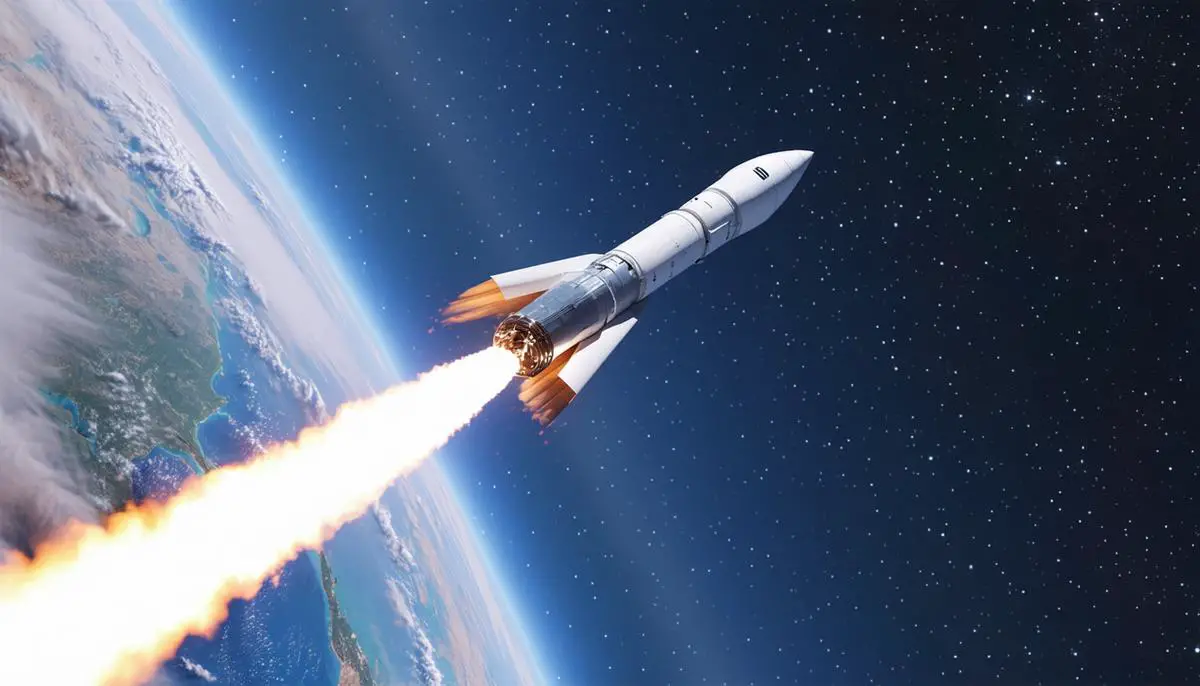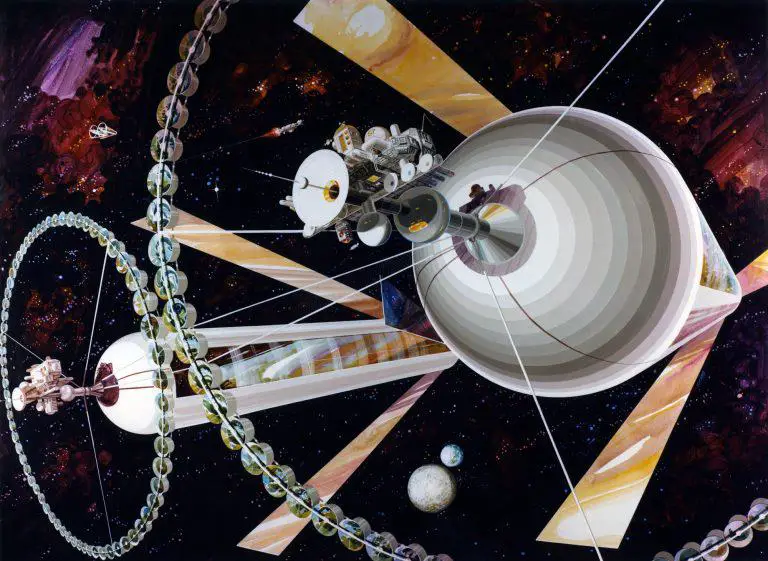Technological Foundations
Propulsion systems form the backbone of space journeys. Recent advancements have transformed ambitious goals into actionable missions. Reusable rockets, spearheaded by private entities, are significantly reducing launch costs. These breakthroughs bolster missions to the Moon and Mars and pave the way for deeper exploration. Technologies like ion thrusters and nuclear propulsion are gaining traction as researchers seek more efficient methods to traverse space.
Life support systems are another critical element. Space travelers face a hostile environment that doesn't naturally accommodate human life. Current research focuses on closed-loop systems that recycle air, water, and nutrients. The International Space Station (ISS) has seen real-world testing of such technologies, serving as a microcosm of potential long-duration habitats.
In-situ resource utilization (ISRU) plays a crucial role by reducing the need for supplies from Earth. The Moon's regolith could provide metals for construction, while extracting water from lunar ice holds potential. These innovations could transform celestial bodies into supply stations, easing our efforts to colonize space.
Private sector involvement is reshaping the industry's landscape. Corporations are driving forward development that previously rested solely on state shoulders. Their competition breeds innovation, leading to advancements in spacecraft design and efficiency. Close collaboration between public and private sectors fosters an environment where groundbreaking technologies can thrive.

Economic Models and Funding
Understanding the economic frameworks that support space colonization is paramount. One intriguing proposal is the adoption of a full-reserve banking system for extraterrestrial settlements. This approach could provide economic stability and safeguard against financial crises, a crucial factor when communities are isolated from terrestrial assistance.
The diffusion of capital ownership stands as a strategic method to ensure equitable wealth distribution in space societies. This model promotes broader access to economic opportunities, empowering individuals within a settlement to share in its prosperity.
Funding these ventures calls for a blend of resources:
- Governments play an indispensable role through state-backed investments, such as grants and subsidies.
- The private sector emerges as a powerful engine of innovation, offering fresh perspectives and agile development frameworks.
- International collaborations offer yet another layer of potential, uniting global expertise and resources.
The interplay between these funding sources—government support, private investment, and international cooperation—will likely shape the strategies that support our movement into space.
Governance and Sovereignty
Envisioning governance for space colonies, particularly Mars, demands a nuanced understanding of sovereignty. The idea of Mars as a sovereign entity introduces a paradigm shift, compelling us to rethink traditional governance frameworks. Establishing independence on Mars implies creating political and legal systems that respect the unique circumstances of its terrain and society.
To implement governance in such an untested environment, Mars must be considered not just a subsidiary of Earthly nations, but as a juridical peer. This requires addressing questions of law, rights, and responsibilities suited to an entirely new setting. Sovereignty on Mars also ties into economic freedom, allowing Martian governance to design economic systems that suit the demands and dynamics of a spacefaring society.
In terms of resource management, sovereignty would bestow the power to harness local assets responsibly. Mars' unique resources can be strategically utilized for the settlement's own benefit, rather than being subject to Earthly extraction desires.
However, establishing sovereignty is not without its intricacies. The notion of governance on Mars must contend with universal space treaties, such as the Outer Space Treaty, which emphasizes the peaceful use of celestial bodies and prohibits any claims of national sovereignty.
Mars' status as a sovereign entity raises questions on defense and security measures. Unlike Earth, Mars will face unique threats from environmental hazards like radiation and meteorites, rather than military confrontations. Therefore, its governance structures must prioritize the welfare and protection of its inhabitants while fostering innovation and resilience in a hostile environment.

Space Economy Growth
The burgeoning space economy presents a compelling story of growth and transformation. Driven by advances in satellite technology, space tourism, and resource extraction, the cosmic frontier is becoming an integral component of global economic dynamics.
Satellite technology continues to redefine the parameters of communication, navigation, and observation. The proliferation of miniaturized satellites and constellations offer unprecedented data coverage and transmission speed, boosting productivity in sectors such as agriculture, transport, and logistics.
Space tourism is transitioning from speculative to tangible. The promise of commercial spaceflight opens avenues for leisure, educational and research opportunities. The economic repercussions extend to hospitality, technology development, and entertainment industries.
Resource extraction from celestial bodies offers a tantalizing prospect of acquiring materials that are scarce or depleted on Earth. The potential to mine asteroids for metals and the Moon for Helium-3 introduces new paradigms of resource management and sustainability.
The space economy's ripple effect on Earth's industries is profound. Technologies developed for space applications promise to redefine sectors like construction and healthcare. The increased connectivity afforded by satellite advancements holds the potential to bridge digital divides, enabling broader access to technology and information.
The forecasted growth of the space economy aligns with an optimistic vision for humanity's future. Realizing this vision demands coordinated efforts in policy, innovation, and international cooperation to harness the space economy's full potential while fostering sustainable practices on and off Earth.

Challenges and Opportunities
Space colonization presents remarkable challenges and opportunities. Protecting future settlers from intense cosmic radiation stands as a formidable obstacle. Mitigating radiation exposure requires innovative engineering, like protective habitats constructed from local materials, or advanced physical and biological shielding technologies.
Psychological well-being presents another layer of intricacy. Distance from Earth, coupled with confinement in isolated environments, may affect the mental health of space inhabitants. Understanding group dynamics and individual resilience will be crucial in crafting supportive social structures that foster community and well-being in space colonies.
Resource scarcity demands the development of supply chains independent of Earth. Innovating sustainable ISRU methods could shift the focus to self-reliance by leveraging extraterrestrial resources. These breakthroughs hold the promise of enabling colonies not just to survive but to thrive in their environments.
Amid these challenges, space colonization opens unprecedented vistas for innovation and economic development. The harsh conditions of space habitats drive advancements that inevitably spin-off into technologies benefiting life on Earth. Additionally, the pursuit of space colonization catalyzes new industries, fostering economic growth.
The race to explore and inhabit new worlds stimulates international cooperation in both scientific endeavors and governance frameworks. Resolving challenges and grasping opportunities requires the collaborative effort of a global community, pooling resources and expertise.
In laying the groundwork for interplanetary habitation, we inch towards a future where innovation driven by necessity translates into strides for all humanity, forging a story where dreams of celestial life transform into a tangible path of advancement and improvement for civilizations on Earth and beyond.

As humanity sets its sights on the stars, the fusion of technological innovation and economic strategy becomes crucial. The path to sustainable life beyond Earth hinges on collaboration and creativity, transforming what once seemed impossible into achievable milestones. Through a blend of public and private efforts, we inch closer to a future where space is not just a frontier but a familiar extension of our world.
- Haqq-Misra J. Sovereign Mars: Transforming Our Values Through Space Settlement. Astropolitics. 2019;17(1):15-29.
- Szocik K, Marques RE, Abood S, et al. Ethical Issues in Space Exploration and Utilization: An Overview. Astropolitics. 2020;18(3):206-230.
- Pass J. Applied Astrosociology: The New Imperative to Protect Earth and Human Societies. Astropolitics. 2019;17(2):141-161.
- Billings L. Should Humans Colonize Other Planets? No. Theology and Science. 2018;16(4):490-492.
- Metzger PT. Space Development and Space Science Together, an Historic Opportunity. Space Policy. 2016;37:77-91.
![]()
